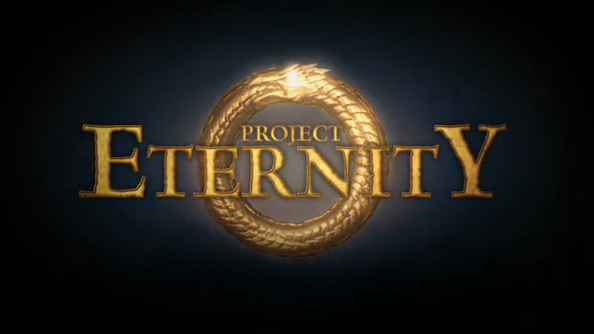Obsidian recently started a successful Kickstarter for their Project Eternity. Obsidian CEO Feargus Urquhart is very enthusiastic what this will mean for the relationship between publishers and developers.
“A lot of it is what crowdfunding is all about. It’s an opportunity to go to fans with something and ask for their opinions, their help, their money to make something you believe in. And we really believe in our role-playing games,” said Urquhart. “We love making the big ones, but we believe in this old school, harder core RPG, and some of those things that are a little bit harder to get funded in the traditional publisher model. That’s nothing against publishers. This is just a different model, and it’s great to go back to something that is our roots.”
While he clearly prefers crowdfunding, Urquhart said the project was in a weird position with publishers anyway. “We’ve talked with publishers a lot over the years and the last six months,” he said. “We never went in with a Powerpoint and a proposal and pitched the full thing or anything like that. It’s just different. It’s not retail, but maybe we’ll have a retail SKU after the game comes out. It’s digital, but not a little digital game. It’s weirdly in the middle. It falls into a no-mans-land a little bit about how products are being considered.”
“How do I put it It’s like we all need to really do the numbers. Any publisher can ship N games every year. If a publisher normally ships 50 games or something, it’s very hard to ship 100 games because they’re not going to increase the number of people they have for a year just to ship 100 games or something. So publishers have to make sure they’re shipping the right number of games at the right level. It takes a lot of effort to support a big console game; it takes much much less to support an XBLA game. And a game like this falls in some weird middle. Do we take it to retail It’s not just a download. But it’s not a $500,000 budget XBLA game. It’s niche . . . And it’s hard for them to evaluate the upside and where to put it. And I think that’s what’s hard. It’s not anything negative or bad; it’s a question of what to do with it.”

While Obsidian is a veteran developer, Urquhart acknowledges that all might not go as planned in development and they have a contingency. “We’re going to be careful with the money because all game development hits snags,” said Urquhart. “So a portion of the money will be set aside. Think of it as something like an escrow account. As development goes and goes, we’ll spend more of that money because there’s only so much development left where we could hit snags, so we don’t need to reserve as much. And at the end, we’ve spent all the money and made a great game.”
On the subject of publishers and crowdfunding, Urquhart was measured but enthusiastic. “I think publishers are curious about the model and curious about what that can do. I think ultimately publishers are looking for good developers to make great games for them,” he said. “They have their internal staff to make great games, and sometimes they need a particular type of developer to make a particular game for them. So I don’t know if that changes things a whole lot on the bigger console level. On the smaller level, I think some publishers may really like the model. It’s pretty scary when you’re a publisher and you have to fund games because that’s what you need to go ship. But now maybe some titles can come to you secondarily, or for distribution, or something like that where you don’t have to worry about a cash outlay so much.
“For the $20-40 million, multi-SKU console game, that’s not the Kickstarter world. I think what Kickstarter gives developers the capability to do-and this is how we’re looking at it-is we’re getting the opportunity to go build a brand, and it’s a brand that we own. And that’s what changes the power a little bit. Now I have a game that we’re going to go make, and I have a brand. And I own that brand. And it’s now something that if I go talk to a publisher to talk about doing something different with a brand-and this is years from now-they’re not going to get to own that brand. That definitely changes whatever you call it, power or leverage . . . it changes the discussion. Absolutely.”
Source: GamesIndustry International

